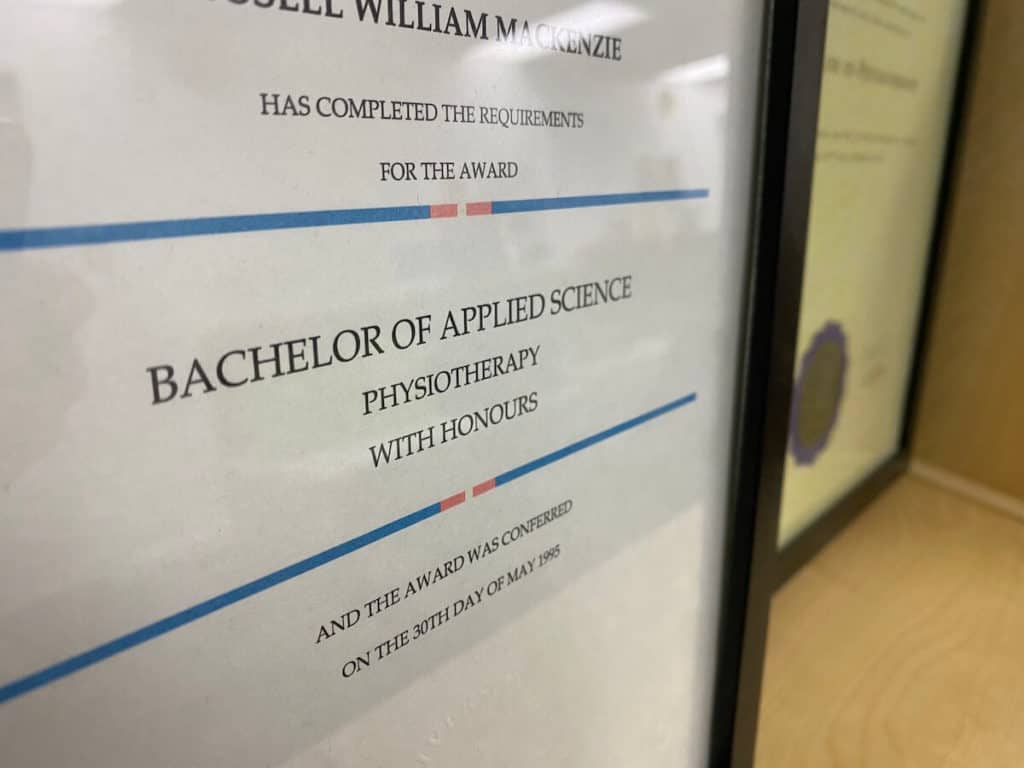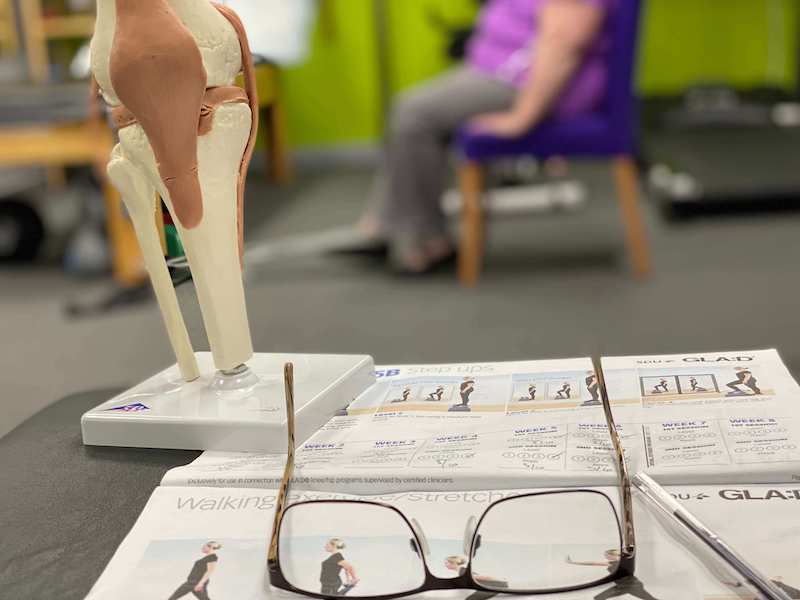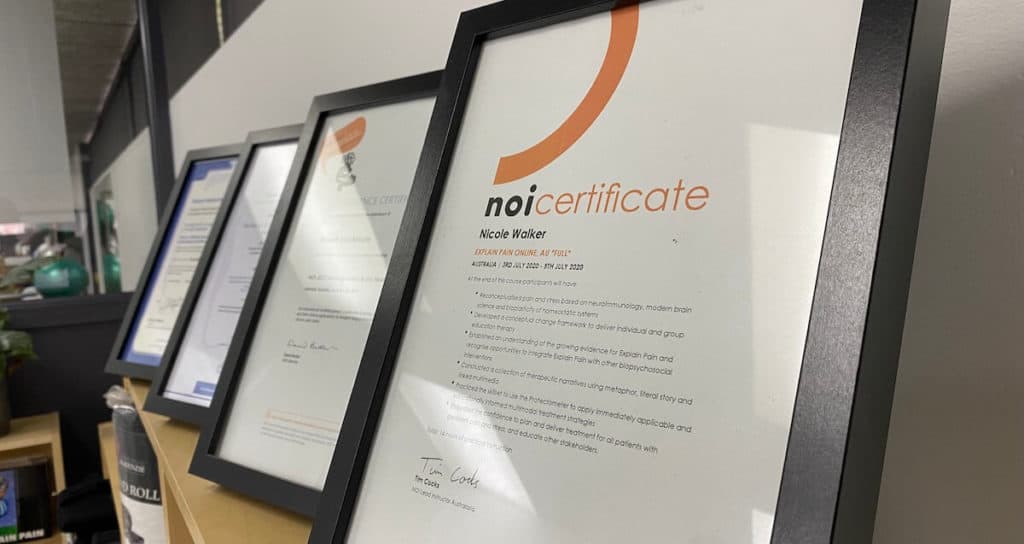There is a lot to consider if you are choosing the right physio. This article explains why the ‘Physio Near Me’ might not be the best choice for YOU.
It started out as a niggle, but it’s getting worse lately. A lot worse.
It seems like the ‘wait-and-see’ approach just isn’t working!
You decide to look for a physio to help solve your problem.
Most people seem to punch in ‘Physio Near Me’ and see what Google suggests.
And that strategy works well if you are looking for the closest takeaway coffee or an Indian restaurant.
But is this a good strategy if you are looking for someone to help with your health?
Why the 'Near Me' strategy doesn't work with health
This is your health we are talking about here, your most important asset.
Do you really want the closest physio? Or the cheapest physio, for that matter?
If need relief from pain, maybe these aren’t the best criteria to use!
The best physio for you will:
- meet your needs
- solve your problem
- help you the fastest
- not miss anything important
WARNING: Choosing the right physio for you might not be the same physio as the ‘Physio Near Me’!
Most people put price and proximity at the top of their list, but these are definitely not the only factors.
In some ways, proximity is the least important factor.
People drive quite a distance to see the hairdresser that they like, to go to a restaurant they like and even to get the coffee that they like.
Your health is important enough to drive more than 5 minutes!
So here is a critical question:
As a physio, what would I look for if I were choosing the right physio if I needed help?
Here is my checklist of what I would be looking for if I were looking for a physio.
It’s useful to know what should set off alarm bells too!
Click here for a list of 7 things that would make me look elsewhere
The Checklist For Choosing The Right Physio For You
- Do they have physio qualifications and registration?
- Will the physio suit your individual needs?
- What kind of experience do they have?
- Will you see the same physio each time?
- Do the appointments allow enough time?
- Do they encourage self-management where possible?
- Will they provide a clear plan including answering the 4 questions?
- Do the physios do regular continuing education?
- Does the clinic have opening hours that will suit you?
- Is the physio clinic accessible?
Let’s break down each of the 10 questions so you work out if you are in the right place!
1. Do They Have Physio Qualifications and Registration?
In Australia, a physio needs to be both qualified and registered.
The minimum qualification is a Bachelor’s Degree in Physiotherapy or the equivalent.
Registration as a physio is with the Australian Health Practitioner Regulation Agency (AHPRA).
You can also check online for information about the physio, their registration and if there have been any disciplinary action and complaints.
Believe me, there are occasional cases of people implying that they are physios when they are not. AHPRA stamps them out pretty quickly these days.

Next is an item that will be specific to just you …
2. Will The Physio Suit Your Individual Needs?
You need to work out whether or not you are speaking to the right people who can help you solve your problem.
This is where specialities, special interests and further training are important.
There are a few ways of finding out if a physio is a good fit early on:
- Look at the clinic website – look for therapist experience, interests and any extra qualifications or continuing education that are relevant to the problem you have. For example, our staff page lists out our different interests and experience.
- Phone the clinic – ask that the physio that you are booking with is the best fit for your problem.
- Referral by your doctor or specialist – this is usually a pretty safe bet as well. If they refer to the practice, it might be reasonable to assume that they have been happy with the care of their patients before.
- Speak with the physio – this is the best solution of all, and here’s why …
If you can speak directly with the physio, you can discuss whether your problem is part of their core services whether they are likely to have a solution for your problem.
This is something that we offer freely because it allows our prospective patients to know if we are on the same page. We also display some of the things we stand for and how we are a little bit different.
Admittedly, you won’t be able to do this at every physio clinic!
However if you can, it might put you at ease that you have made a good choice.
It is important to know if the physio is likely to suit you early on.
Otherwise the end result could be that you are disgruntled and need to look for help elsewhere after having wasted both time and money.
Would you like to speak with one of our physios FREE OF CHARGE?
What’s holding you back? Let’s talk about it!
BOOK ONLINE or call us on (08) 7282 0871 and let’s lock in a time!
NB: This offer is for Adelaide residents only.
3. What Kind Of Experience Does The Physio Have?
There is no denying it. Experience is important.
It is more likely that an experienced physio has seen your kind of problem many times before, know how the problem behaves and hopefully treated it successfully.
Experience isn’t just about how long they have been a physio, it also includes the type of experience they have had.
The website of the practice should provide information on the amount and nature of experience of the physios in the clinic.
The following questions are harder to answer from the website:
- How are younger physios in the practice supported in order to upgrade their skills and fast track their experience?
- How are the younger physios supported when they have patients with more challenging problems?
If you can answer these questions, you’ll know that a younger physio will have had extra up-skilling and the support of the senior physios.
Bear in mind that experience doesn’t necessarily equal passion!
Younger physios are often very passionate, brimming with enthusiasm and keen to learn.
So let’s say you are happy with your experience with the physio …
4. Will You See The Same Physio Each Time?
Ideally, when you are choosing a physio, you want to see the same physio every visit.
You don’t want to be telling your story all over again at each visit. Not only would that quickly get frustrating, important information could be missed.
However, if it is impossible to see the same therapist for the next visit, what systems are in place to make sure that it is a seamless transition?
Is there a system for handover of information so that you don’t have to tell your story over and over again?
If you happen to see another therapist and they clearly don’t know specifics about your problem and you are retelling your story, it is a warning sign.
Would you like to speak with one of our physios FREE OF CHARGE?
Not sure about what you should do to get better? Let us give you some guidance.
Book online, or call us on (08) 7282 0871 and let’s lock in a time!
NB: This offer is for Adelaide residents only.
5. Do The Appointments Allow Enough Time?
You can gauge this from a phone call to the clinic:
- Will you get enough time with the therapist to be adequately assessed and treated?
- Will the physio give you one-on-one time or do they treat multiple patients at the same time?
- Will you get the time allocated to you for the physio to reach a definite diagnosis, to have it explained to you properly, and enough to time to create a plan of attack together?
Treating multiple patients was part of the 1980s and 1990s culture.
Appointment times used to be shorter.
It wasn’t uncommon to have 15 or 20 minute appointment slots. Initial assessments were often done in 30 minutes.
Having worked in clinics that operate with shorter appointment times, there was a definite continual rush to get patients in and out.
As a result, there was always the risk of missing important things.
There wasn’t ever the time to really listen.
When you are choosing the right physio for you, you need a clinic where:
- you are one-on-one with the physio. You deserve their undivided attention
- there is enough time to be assessed, diagnosed and treated in that initial consultation
There should always be the time to explain and answer your questions, and enough to time to create a plan of attack together.

6. Do They Encourage Self-Management Where Possible?
Therapist reliance:
- is when you see a health practitioner regularly
- makes you feel like you need to continue to be treated regularly keep something ‘in’ or to keep it under control
- encourages you continue getting treatment for fear of something happening if you stop
- prevents the you from taking control of your problem.
You need a physio who sees their job as helping you to get over a problem, and to teach you the skills that you can use to help you get on with your life.
Manual therapy is a passive treatment and relies on someone ‘doing it to you’. It could be joint mobilisation, manipulation, ‘adjustment’ or massage.
There are times that manual therapy is absolutely necessary to get to that point of caring for yourself independently.
Equally important is learning the skills to maintain improvement and to hopefully stop you from having a recurrence.
‘Give a man fish and you feed him for a day, teach him how to fish and you feed him for a lifetime’.
You don’t want a physio that keeps giving you fish when what you need is to learn how to cast a fishing line.
Would you like to speak with one of our physios FREE OF CHARGE?
Just having a plan can make you feel better. Let’s work one out!
Book online, or call us on (08) 7282 0871 and let’s lock in a time!
NB: This offer is for Adelaide residents only.
7. Will The Physio Provide A Clear Plan Including Answering The 4 Questions?
There are four basic things that people want to know from their physiotherapist or any health provider.
The four questions that any patient wants to know from their health provider are:
- What is wrong with me?
- How long will it take to get better?
- What can you do for me to help me to get better?
- What can I do to help myself?
Too often, people walk out of a treatment session and don’t fully understand what the key findings were, what the therapist thought the problem was or what the treatment plan is for their problem.
A written plan of some description should be provided at the end of your first visit.
This should provide information about diagnosis, prognosis, self management strategies, what to continue doing, what to avoid, and what the physio proposes for treatment.
It allows you and your therapist to be on the same page from the start.
8. Do The Physios Do Regular Continuing Education?
How do the physios keep up their skills? Do they attend courses or conferences?
Do they stay in touch with the latest research, and what is current in the world of physiotherapy?
Does the physio practice run regular continuing education sessions to pass on new information to the other physiotherapists?
You want to see a therapist that is up-to-date and continues to be curious about finding the best treatments for you.
An example of proof of up-to-date information is this article about back pain physio best practices that illustrates how we approach the problem of persistent low back pain.
You can usually find out some information about their stance on continuing education on the clinic website. Some websites might keep a record of what continuing education each of the physios has done.
Otherwise you can ask a simple question like ‘what do the physios at the practice do to improve their skills?’, or ‘does the practice have professional development sessions?

9. Does The Clinic Have Opening Hours That Will Suit You?
The reality is that a lot of people can’t attend during business hours.
Does the clinic offer after hours appointments or weekend times if you need them?
10. Is The Physio Clinic Accessible?
Location and parking availability are important considerations.
Distance isn’t always a barrier if you provide what the patient needs.
I have had patients come from Narcoorte, Alice Springs and Kangaroo Island.
If it is the right physio with the right services and the right skill-set, it is worth an extra few minutes in the car!

Guarantees
A guarantee is a sign of confidence in what a business has to offer, whether it is a service or a product.
Surprisingly, there aren’t many physio clinics or health providers that do offer any form of guarantee.
Perhaps some feel that to provide a guarantee is beneath them, or perhaps they aren’t confident in their product, service or staff.
Let’s face it, booking in with a health professional is a risky decision. You don’t know what that practitioner is going to be like until you have your consult.
If you can find a physio clinic that provides a guarantee, it should give you confidence in their services, and it also shows their confidence in what they can do for you.
Would you like to speak with one of our physios FREE OF CHARGE?
Don’t let pain stop you from living your life. Let’s talk about your steps for recovery.
Book online, or call us on (08) 7282 0871 and let’s lock in a time!
NB: This offer is for Adelaide residents only.
Let’s say you have seen your chosen physio for your first visit. Here are some things to consider to help you decide if they are a good fit for you.
After You Have Seen The Physio
These are questions that you won’t be able to ask yourself untiil after you have experienced the services:
- Is there genuine concern for your condition?
- Do they communicate well?
- Do they follow up with their patients after the sessions?
- Do they have a genuine motivation towards maximising your independence?
- Are the premises comfortable and clean?
- Are the admin staff happy, helpful and easy to deal with?
Each of these will help you to know that you are in the right place.
A Word On Cost
Cost is always important.
The adage ‘you get what you pay for’ often holds true.
If you pay for health insurance, it is only reasonable that you get the most from it.
The preferred provider schemes appear to deliver good value if you are insured with that particular fund.
I have previously written a summary on the topic of preferred provider schemes, and how they aren’t always as they seem.
It explains that while there may be a benefit early in the year with higher rebates, it doesn’t mean that you will be financially better off as the year goes on.
Even if you get to pay a smaller gap, it can end up costing more to see a preferred provider who is:
- inexperienced
- has not keep up with the latest knowledge
- rushing you through short appointments
- motivated to maximise the number of appointments you attend
Ironically, you can expect to spend less on your physio treatment if you are seeing the best physio rather than the cheapest.
The cost could be financial, but it also could be your health.
7 Red Flags When Choosing A Physio
These 7 pointers are coming from someone who has worked as a physio for more than 25 years.
Not every physio will agree with these – and that’s OK. I stand by them.
- A physio who still relies on electrotherapy. This is a big red flag in the 21st century. Electrotherapy could be ultrasound, interferential, medium frequency, laser, short wave diathermy.
- A physio who relies heavily on dry needling. While it has its place and can be part of a treatment strategy, there must always be more.
- A physio who uses ‘bad language’. Anyone who talks in terms of something ‘being out’, ‘breaking up scar tissue’, ‘being able to feel inflammation’, ‘releasing toxins’, ‘realigning joints’.
- A physio who does not provide a clear plan at the end of treatment. A treatment plan is a must, and it must be clear and agreed upon. Treating session to session isn’t good enough.
- A physio who does not encourages any kind of self-management or self-reliance. It is clear that the patient being able to take control and be empowered about their health is the modern standard.
- A clinic which provides 15 or 20 minute appointment times. It just isn’t enough time to provide high quality, modern physiotherapy treatment.
- A physio who has poor communication skills. You need to feel heard, feel comfortable talking with your physio and understand their plan and ideas.
Final Words
This information can be used when choosing the right physio or any health care provider.
Be wary about using the ‘Physio Near Me’ Google search to make your decision.
Sure, you are going to get the closest practice.
This may be important if you are travelling by foot.
However, if you aren’t walking to your appointments, you really need to consider what matters the most.
Much like proximity, be careful about price as your determining factor.
As much as it’s a cliché, you get what you pay for.
If you want highest quality, an appointment immediately and a fast result, then you may need to spend more.
And remember, this is your health we are talking about.
It’s the biggest asset you have.
Would you like to speak with one of our physios FREE OF CHARGE?
No strings attached. Let’s see how we could help.
Book online, or call us on (08) 7282 0871 and let’s lock in a time!
NB: This offer is for Adelaide residents only.















